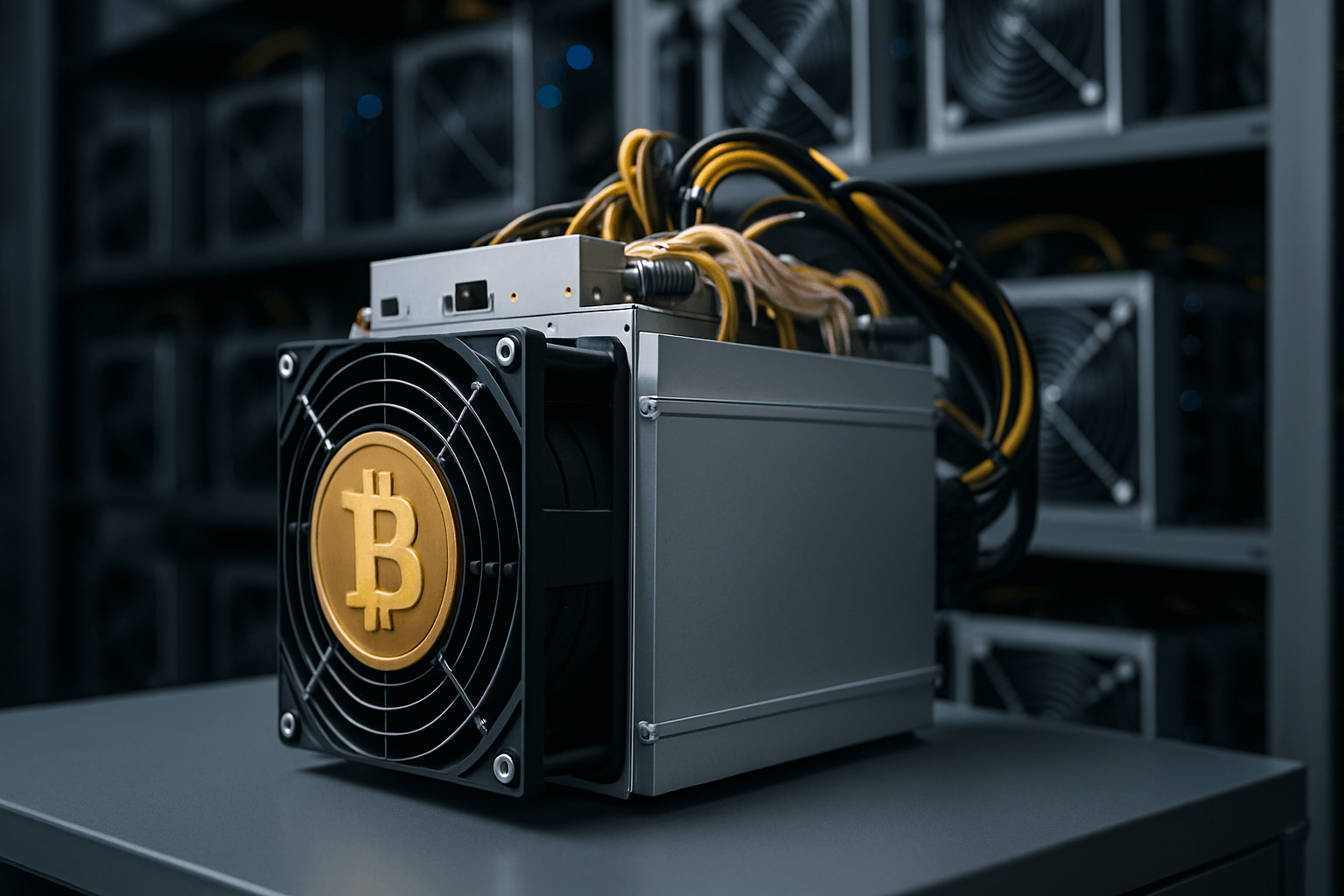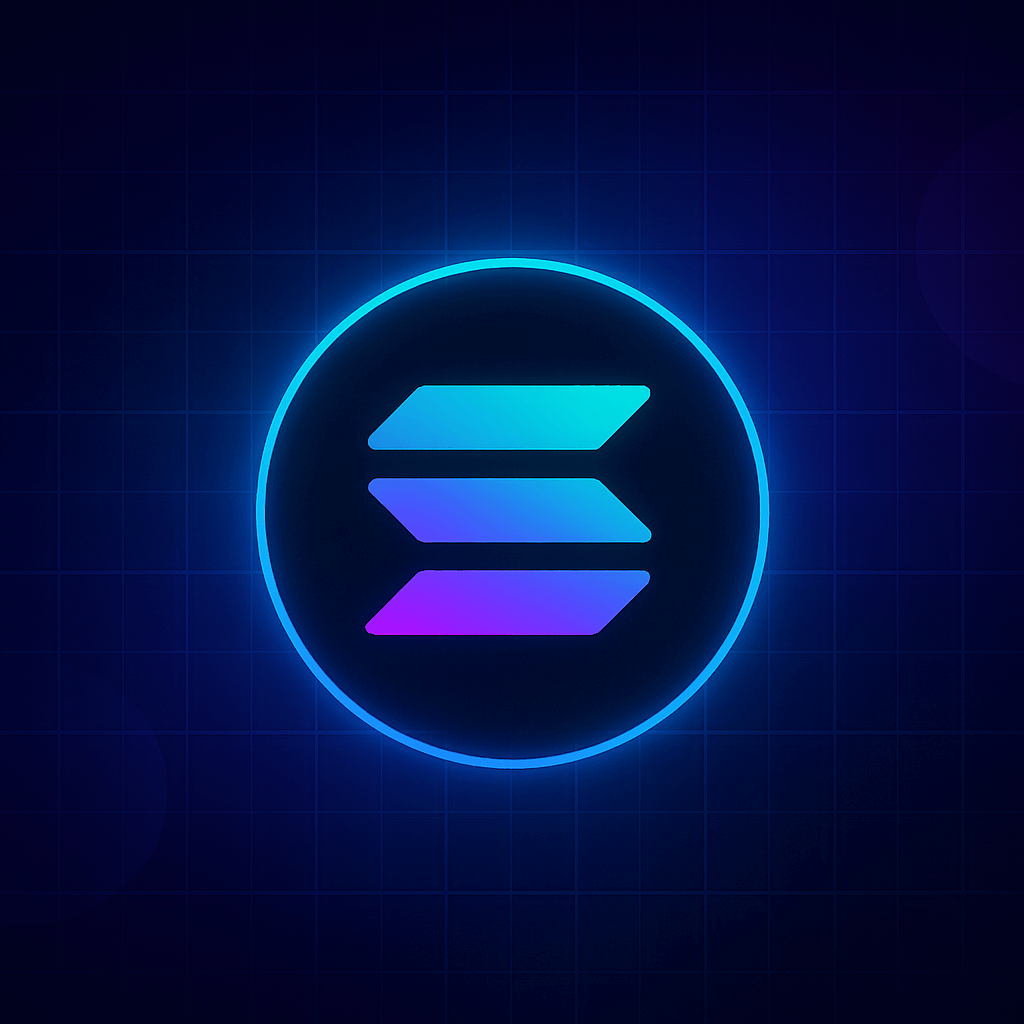Borrowing
Loans for Bitcoin & Crypto Mining
January 06, 2024
Borrowing
January 06, 2024

Bitcoin mining requires significant capital investment; find out how crypto loans may help supercharge your mining operation.
If you are a bitcoin miner, you know how rewarding it can be to mine your own cryptocurrency. However, you're likely also familiar with the increasing difficulty and competition in the bitcoin mining industry. As more and more users adopt the blockchain — and miners compete for rewards — the costs of mining are drastically increasing. In order to be profitable mining bitcoin, you need to invest in expensive hardware, electricity, and maintenance.
But what if you need some extra capital to start or expand your mining business? Or what if you want to avoid selling your earned bitcoin or other cryptocurrency at low prices during market dips? For resourceful miners, crypto loans may present a good opportunity to raise capital for mining without selling your crypto assets.
In this article, we will explain how crypto loans work, cover the benefits and risks of using them for mining, and look at some popular platforms where you can get a crypto loan.
We will also introduce you to Rocko, a new service that makes DeFi loans easy and accessible for miners. Whether you’re a beginner or an expert miner, crypto loans may be just the solution you need. Let’s get started!
The cryptocurrency mining process involves validating transactions and creating new blocks on a blockchain network. This method was pioneered by the Bitcoin blockchain, with bitcoin miners creating the standard for effective blockchain mining.
Miners use specialized mining equipment that comes in the form of GPUs (graphics processing units) and ASIC (application-specific integrated circuit) miners. We'll take a look at both solutions below.
Mining is the process of solving complex mathematical problems in order to create the next block in the blockchain. In return for doing bitcoin mining work, miners get rewarded in bitcoin. The more powerful the mining rig, the higher the chances of creating the next block and earning a reward.
However, mining is not a simple or cheap process. There are many factors that affect the profitability of mining, including:
These constraints lead miners to look for solutions that can help them optimize their mining operations, reduce their costs, and increase profits.
There are several ways to mine bitcoin, depending on the preferences of miners. Let's take a look at the most common solutions.
Mining software runs on a mining device, such as a GPU or ASIC, and enables the hardware to function. Thanks to this software, the mining rig can perform the calculations necessary to solve the cryptographic puzzles and submit the proof of work to the network.
Mining software also monitors and controls the mining devices, adjusting parameters like the fan speed, temperature, and power consumption.
A mining pool is a group of miners who pool their hardware resources together for more efficient mining. Mining pools (also known as mining farms) increase the chances of creating a new block and earning a reward as they combine the computing power of multiple miners.
Mining pools help to bring predictability to bitcoin mining as miners can expect to add new blocks to the Bitcoin network more frequently than if they were solo. Consequently, participants also share rewards among each other.
Mining hardware is the physical device that performs the mining operation. Bitcoin mining hardware varies widely in computational power and cost. Some of the most common types of individual miners include:
| Type | Description | Example |
|---|---|---|
| GPU | Graphics Processing Unit, a specialized processor for graphics and gaming. | Nvidia GeForce RTX, AMD Radeon RX |
| ASIC | Application Specific Integrated Circuit, a dedicated chip that is designed for a single purpose. | Bitmain Antminer, MicroBT WhatsMiner |
| FPGA | Field Programmable Gate Array, a reprogrammable chip that can be customized for specific tasks. | Xilinx Virtex, Altera Stratix |
| CPU | Central Processing Unit, the main processor of a computer. | Intel Core i9, AMD Ryzen 9 |
Miners can also go through platforms that offer white-glove mining solutions. These include cloud mining, hosting, consulting, education, and more.
Mining services can help miners access mining resources without having to buy or maintain their own hardware. They can also provide miners with guidance and support to improve their mining efficiency and profitability.
Whether you're using a bitcoin mining service or running your own hardware, you will need funds for your operation. Bitcoin is a valuable asset but getting liquidity without selling it can be a challenge: What if you don’t have enough funds? How can you make mining more efficient and sustainable?
One possible solution is to use DeFi for crypto loans.
DeFi loans are loans that are issued and managed by decentralized protocols running on a blockchain, such as Ethereum. DeFi loans are secured by crypto assets like Ether, wrapped bitcoin, or other tokens through a system of collateral, so there is no complex application process or necessary credit check.
Borrowers can access loan funds in a currency different from the one that they provide collateral in. Many borrowers choose to take out some or all of their loan amount in stablecoins for easy liquidity. Borrowers pay interest on their loans, and this interest gets forwarded to the lenders in a decentralized and trustless manner thanks to the smart contract technology that DeFi loans are built on.
DeFi loans can provide a variety of benefits to crypto miners who may need extra liquidity to run and expand their mining operations.
1). Unlocking Liquidity
Mining rigs require a lot of upfront investment, and it may take a while before they pay off. DeFi loans can unlock liquidity earlier and help bridge cash flow gaps. For example, a miner can lock up their mined cryptocurrency as collateral and borrow a stablecoin to pay for their electricity bills, rent, or other expenses without having to sell their crypto assets at a low price.
2). Capital for Expansion
If miners want to expand their mining operations by purchasing additional mining rigs or investing in better rigs, they can take out a DeFi loan using their existing crypto assets as collateral. These expansion funds can then generate more income through mining, creating a virtuous cycle thanks to the liquidity unlocks of DeFi loans.
3). Price Dips
During market downturns, miners might not want to sell their mined cryptocurrency at low prices. They can use their holdings as collateral to obtain a loan, maintain operations, and wait for a market recovery to sell at a higher price.
4). Tax Optimization Strategies
By borrowing against their crypto holdings instead of selling them, miners can potentially defer or minimize the capital gains taxes they would incur from a direct sale. This way, they can preserve their wealth and reduce potential tax liabilities.
If you're interested in using DeFi loans for mining, it may help to get acquainted with the basics of DeFi lending and borrowing. We've written some helpful articles to get you started that you can can check here:
You also need to find a suitable DeFi protocol that facilitates loans between crypto lenders and borrowers. Some popular and reputable DeFi platforms and protocols include:
Aave (governance token: AAVE)
Aave is a decentralized lending and borrowing protocol that allows users to supply and borrow a variety of crypto assets including ETH, WBTC, DAI, USDC, and others.
Aave offers loans over long time horizons with various interest rates. The service also provides flash loans, which are instant loans that users take out and repay within the same blockchain block.
Compound (governance token: COMP)
Compound is another decentralized lending and borrowing solution that allows users to supply and borrow various cryptocurrencies and stablecoins.
Compound offers floating interest rates that are determined by an algorithm based on supply and demand.
MakerDAO (governance token: MKR)
MakerDAO is one of the original lending protocols on Ethereum. It works a little differently from Aave and Compound by allowing users to lock up ETH or other tokens as collateral and borrow DAI, a stablecoin that is pegged to the U.S. dollar. DAI is one of the most popular and well-collateralized stablecoins in crypto.
MakerDAO offers a variable interest rate, called the stability fee, that is adjusted by the Maker community through a governance process in order to maintain the value of DAI.
While there are a variety of options when it comes to DeFi crypto loans, it's important to keep in mind the potential tradeoffs DeFi loans come with. Some of the drawbacks and difficulties that you might face include:
- Risk and uncertainty: Using DeFi loans for mining involves risks and uncertainties stemming from market volatility, variability of loan rates, and other factors. For example, if the market price of your collateral drops below a certain threshold, your loan may be liquidated and your collateral sold to repay the debt.
- Complexity: DeFi loans can be tough for beginners to figure out. You need to have some technical knowledge and experience with the blockchain, smart contracts, and crypto wallets. You also need to understand the technical terms of your loan, including the interest rates, collateral requirements, and liquidation risks.
DeFi loans look like the future of lending for many, but they're not without complexity. Properly implemented, crypto loans can provide you with liquidity and supercharge your mining operation.
Thankfully, you don't need to brave DeFi loans by yourself. Rocko is here to help.
Rocko is a new platform that enables crypto owners to easily and securely borrow from popular DeFi protocols like Aave, Compound, and Morpho and get funds in minutes — no experience needed! Use the loan to purchase real estate, pay down higher-rate debt, make everyday purchases, and much more.
Rocko also provides a loan management dashboard and tools like text and email alerts to help manage your loan and collateral. The Rocko team consists of experienced crypto enthusiasts who are ready to help you with any questions you may have. You can join the Rocko Discord server, follow our Twitter account, or visit our resource center to learn more about DeFi borrowing.
Sign up for Rocko and get a loan today!
Rocko does not guarantee the reliability of the Site content and shall not be held liable for any errors, omissions, or inaccuracies. The opinions and views expressed in any articles on rocko.co are solely those of the author(s) and do not reflect the opinions of Rocko. The information provided on the Site is for informational purposes only, and it does not constitute an endorsement of any of the products and services discussed or investment, financial, or trading advice. A qualified professional should be consulted prior to making financial decisions.

Crypto & DeFi
Why Borrow Against Staked ETH? Liquid-staking tokens (LSTs) such as stETH, wstETH, cbETH and rETH let you keep earning staking rewards while…
June 17, 2025

Crypto & DeFi
Bitcoin Mining Loans: How to Fund Your Mining Business Bitcoin mining is the backbone of the Bitcoin network—a decentralized process where…
May 07, 2025

Crypto & DeFi
The 5 Best Solana Loan Platforms of 2025 As Solana cements its position as a leading blockchain for high-speed, low-cost DeFi applications…
May 06, 2025